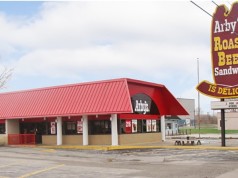Remarks of Under Secretary for Domestic Finance Mary Miller at Event Hosted by the Michigan State Housing Development Authority (MSHDA)
As prepared for delivery
DETROIT – August 27, 2013 – (RealEstateRama) — Good afternoon and thank you for having me.
First of all, I want to thank Governor Snyder, the Michigan State Housing Development Authority, Sen. Levin and Congressmen Dingell, Kildee, Peters, and Conyers for working on this important issue and inviting me to attend this important event. I would also like to thank Scott Woosley for that kind introduction.
The Michigan State Housing Development Authority has been a valued partner in developing programs to tackle the unique challenges faced by Michigan homeowners. This gathering is the culmination of months of hard work to develop an innovative proposal to fight blight here in Michigan.
The leadership exercised by the Governor’s office and MSHDA, working closely with the City of Detroit, has come at a critical time for this city. While Detroit’s financial challenges are serious, I believe that the strength and resilience of Detroit’s residents will foster a recovery that preserves Detroit’s status as one of America’s greatest cities.
And today’s event marks a step towards that recovery. There are an estimated 78,000 vacant and abandoned homes that depress surrounding home values, pose public safety risks and strain city resources. But the Blight Elimination Program, combined with Mayor Bing’s own aggressive demolition plan, are a powerful example of what can be achieved when federal, state, and city leaders join forces and align their investments to tackle a problem with scale.
As some of you may know, my own house is in the city of Baltimore. I understand first-hand the negative effects that vacant and abandoned homes can have on city residents. Baltimore has 16,000 vacant homes and faces unique challenges in demolishing vacant buildings. Earlier this year I took a group of Treasury staff to tour these areas with the Baltimore City Housing Commission. They said the hardest money to secure was for demolition. That visit was a reason we are so excited to see this proposal from Michigan.
Treasury established the Hardest Hit Fund in February of 2010 as part of the Administration’s overall strategy for restoring stability to the housing markets. In total, the Hardest Hit Fund has committed $7.6 billion to 19 state housing finance agencies to develop locally-tailored foreclosure prevention solutions.
Michigan has been allocated nearly $500 million under this program. Through this program, Step Forward Michigan has provided nearly $95 million in relief to more than 13,000 Michigan homeowners, nearly half of whom reside in Southeast Michigan and more than 10 percent of whom reside right here in Detroit.
These programs have provided direct assistance in the form of loan modifications for struggling homeowners, and have helped unemployed homeowners make their mortgage payments. I encourage every Michigan resident that is having trouble making their monthly mortgage payments to speak with a free HUD-approved housing counselor about Step Forward Michigan (888-995-HOPE), call your mortgage servicer, or directly apply through the Step Forward Michigan website (stepforwardmichigan.org).
We will continue to work with Michigan to expand outreach and marketing efforts for these important programs to assist Detroit homeowners during these difficult times.
I am happy to be here today to witness the kick-off of the Blight Elimination Program. Treasury applauds Michigan’s hard work and creativity that led to $100 million dollars in Hardest Hit Funds being dedicated to the Blight Elimination Program that seeks to prevent foreclosures by addressing blight in a way that has never been done before. Other states have taken notice and may develop similar programs. We will be celebrating your progress.
Neighborhoods across Michigan that have been struggling with the damaging effects caused by vacant and abandoned properties will soon see the benefit of these funds.
This program takes an innovative approach to reduce foreclosures and revitalize neighborhoods and communities, while also providing increasing local tax receipts and reducing the strain on municipal resources.
Treasury remains committed to supporting Michigan’s homeowners. Michigan’s Hardest Hit Fund programs will continue to provide assistance to Michiganders who face a variety of challenges, and Treasury is committed to leveraging every available resource to reach as many homeowners as possible.
It is my honor to now invite four of the most respected members of the United States Congress to come to the podium. Please join me in welcoming Representatives John Conyers, John Dingell, Gary Peters and Dan Kildee.




